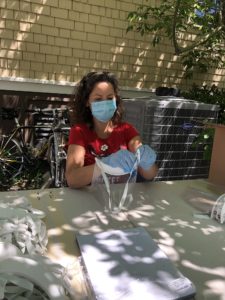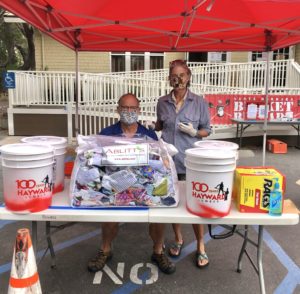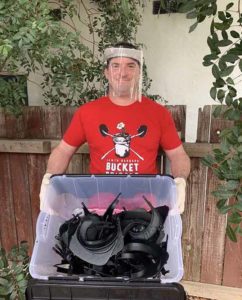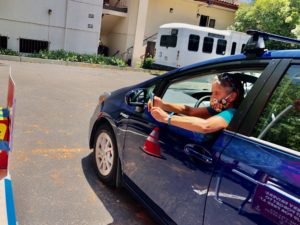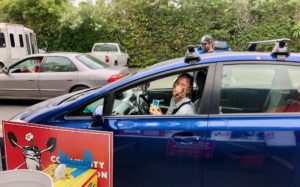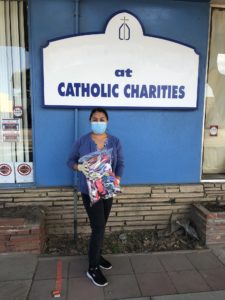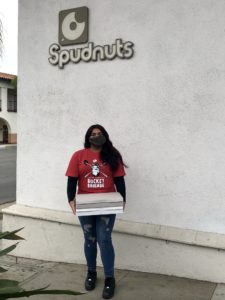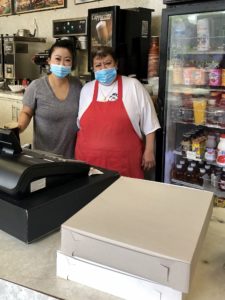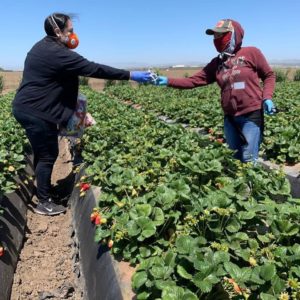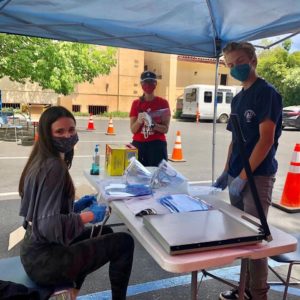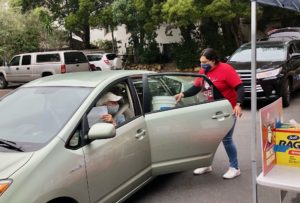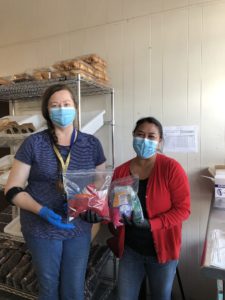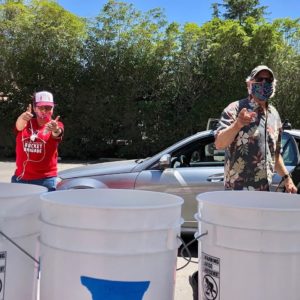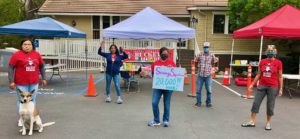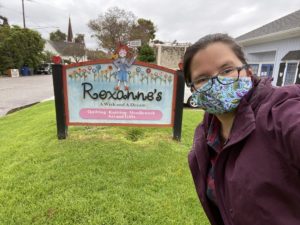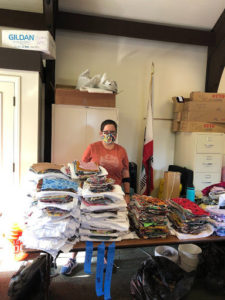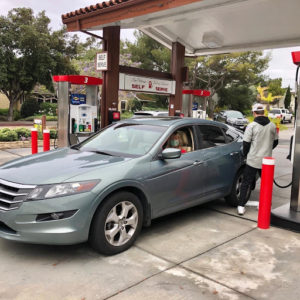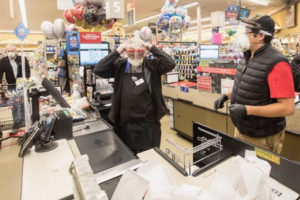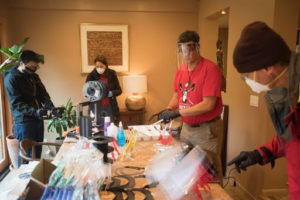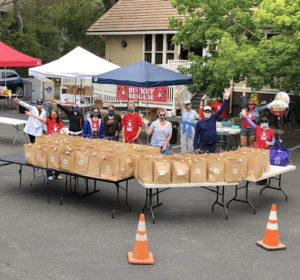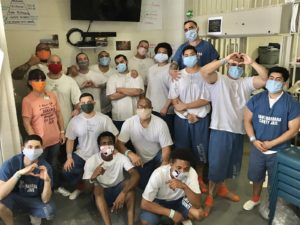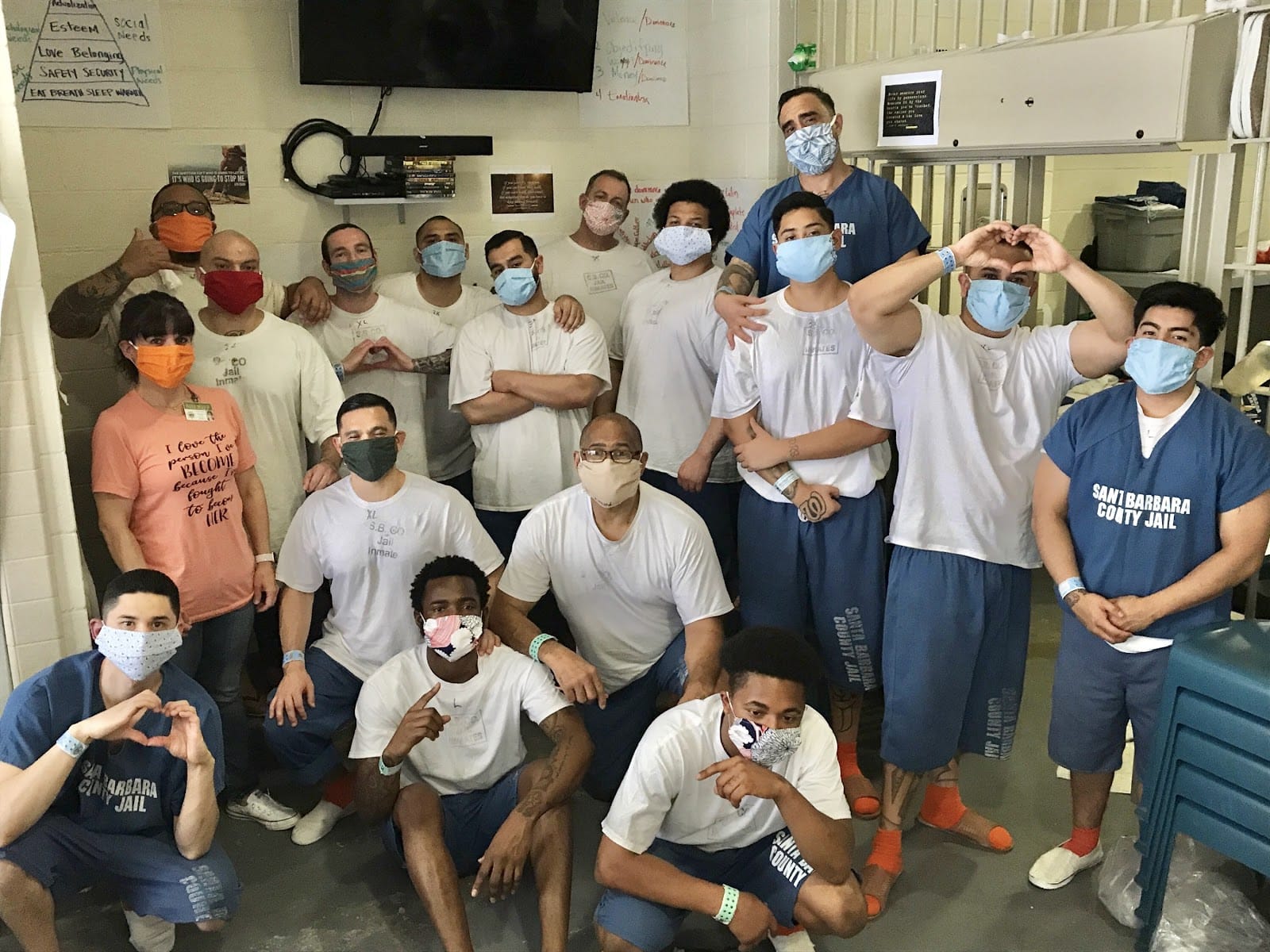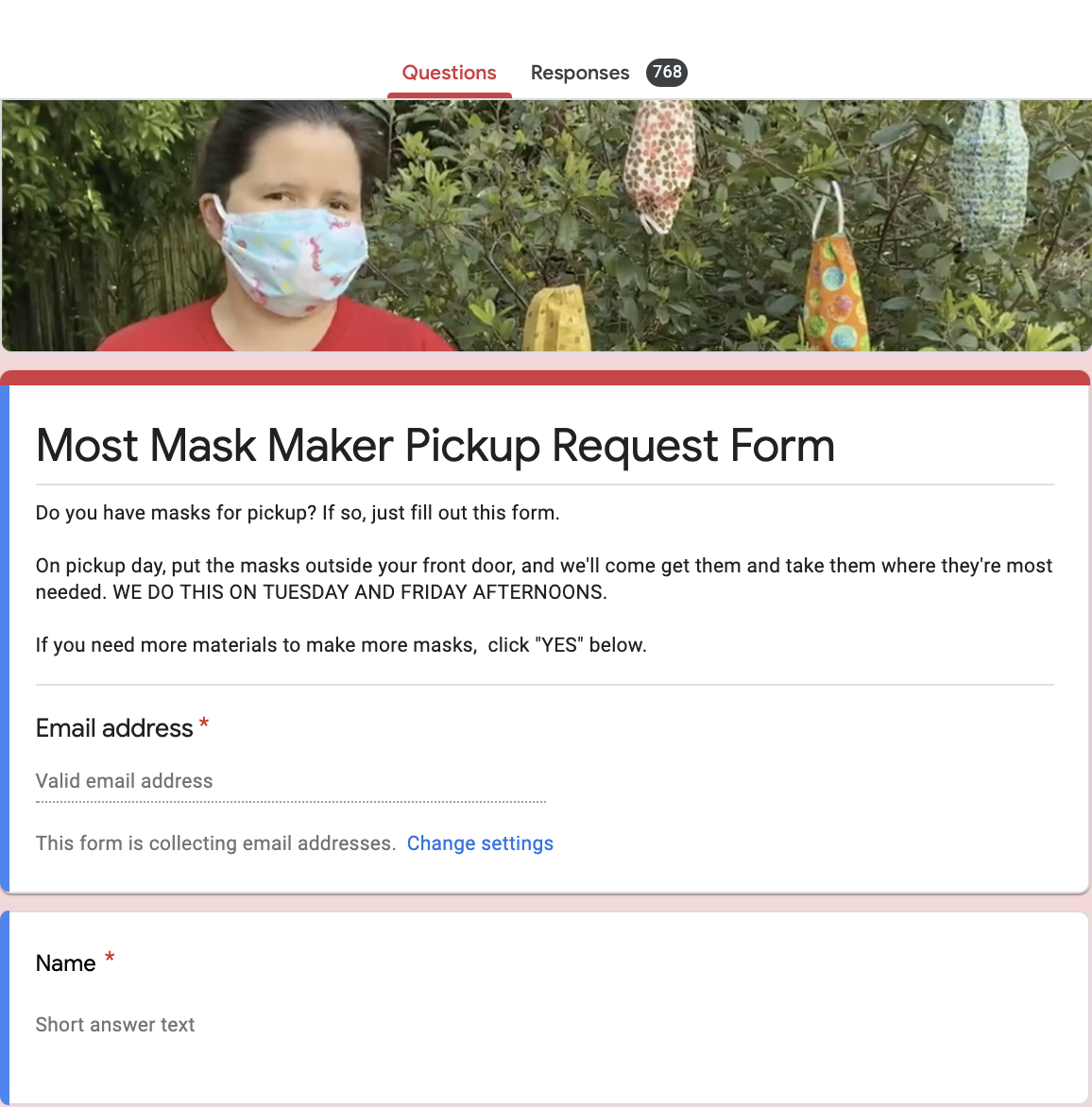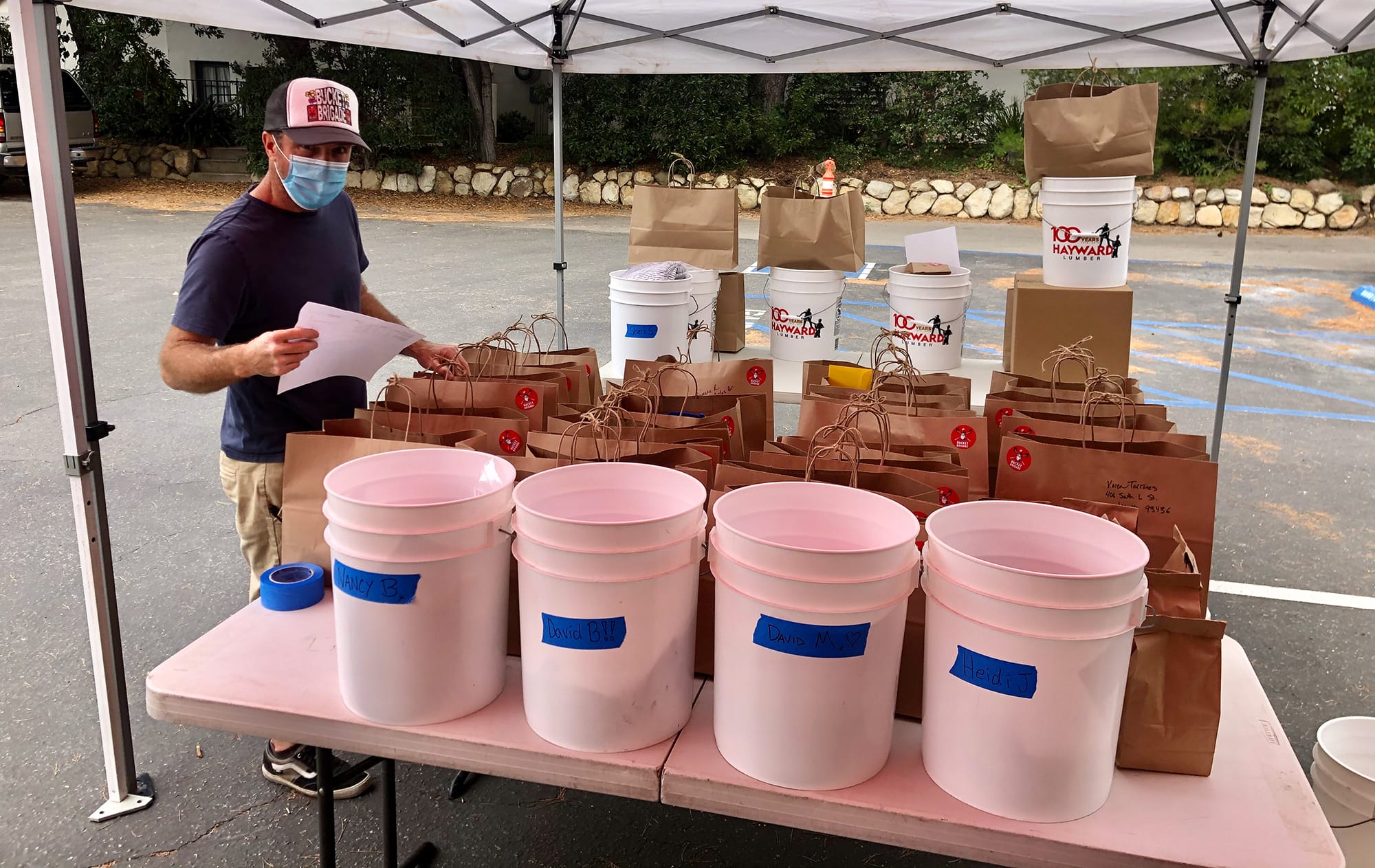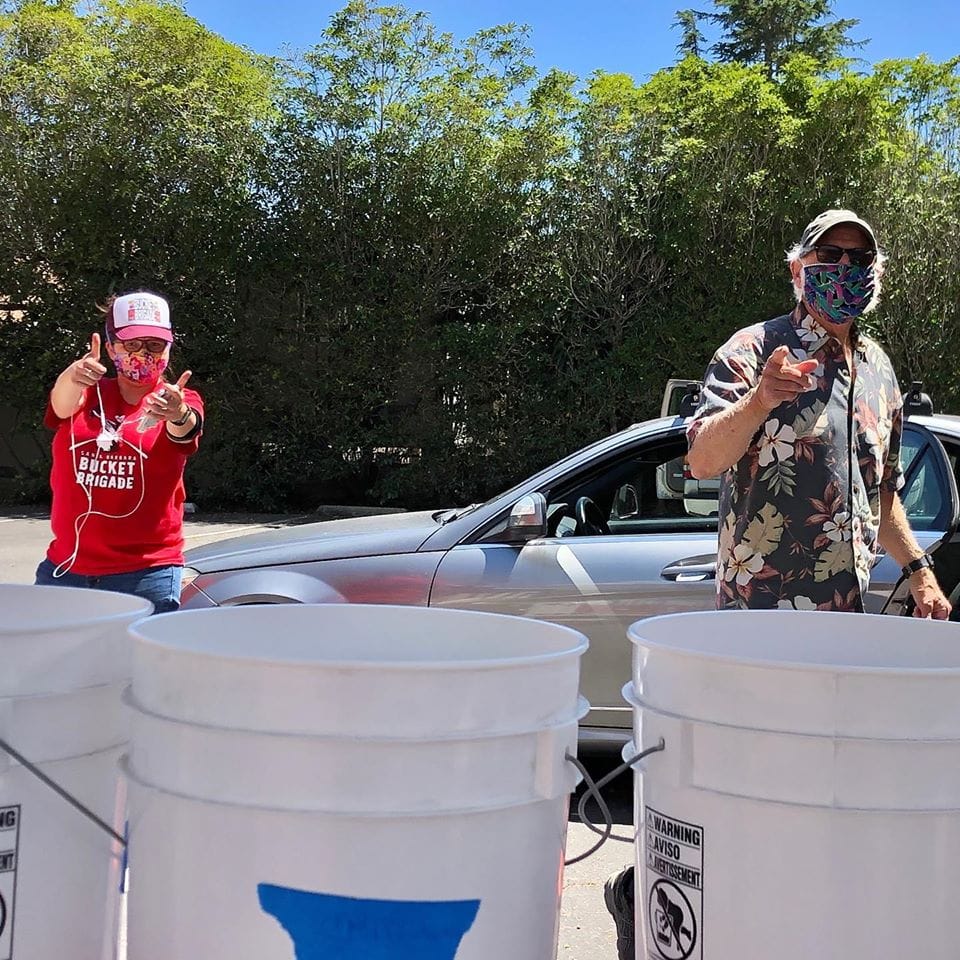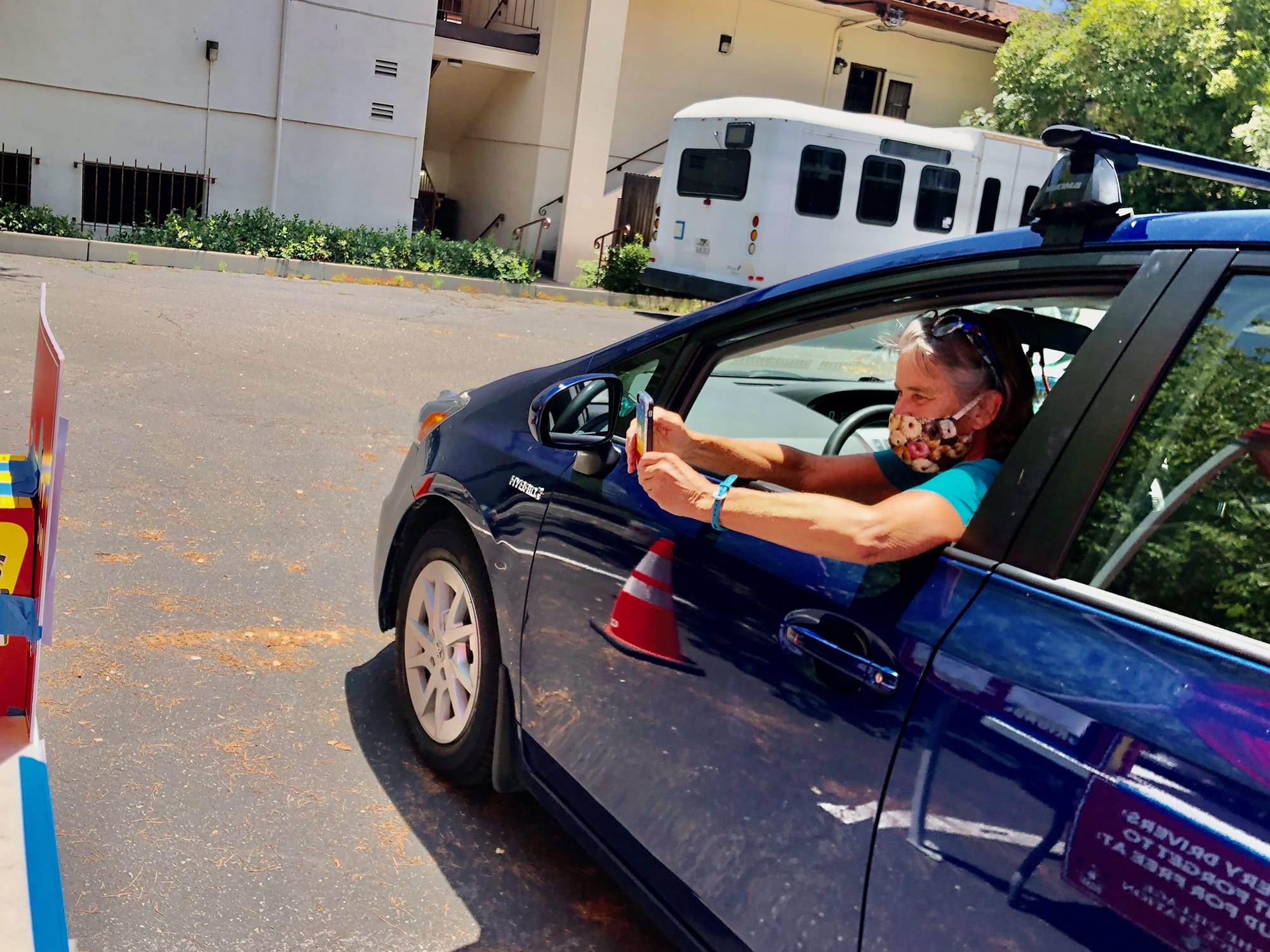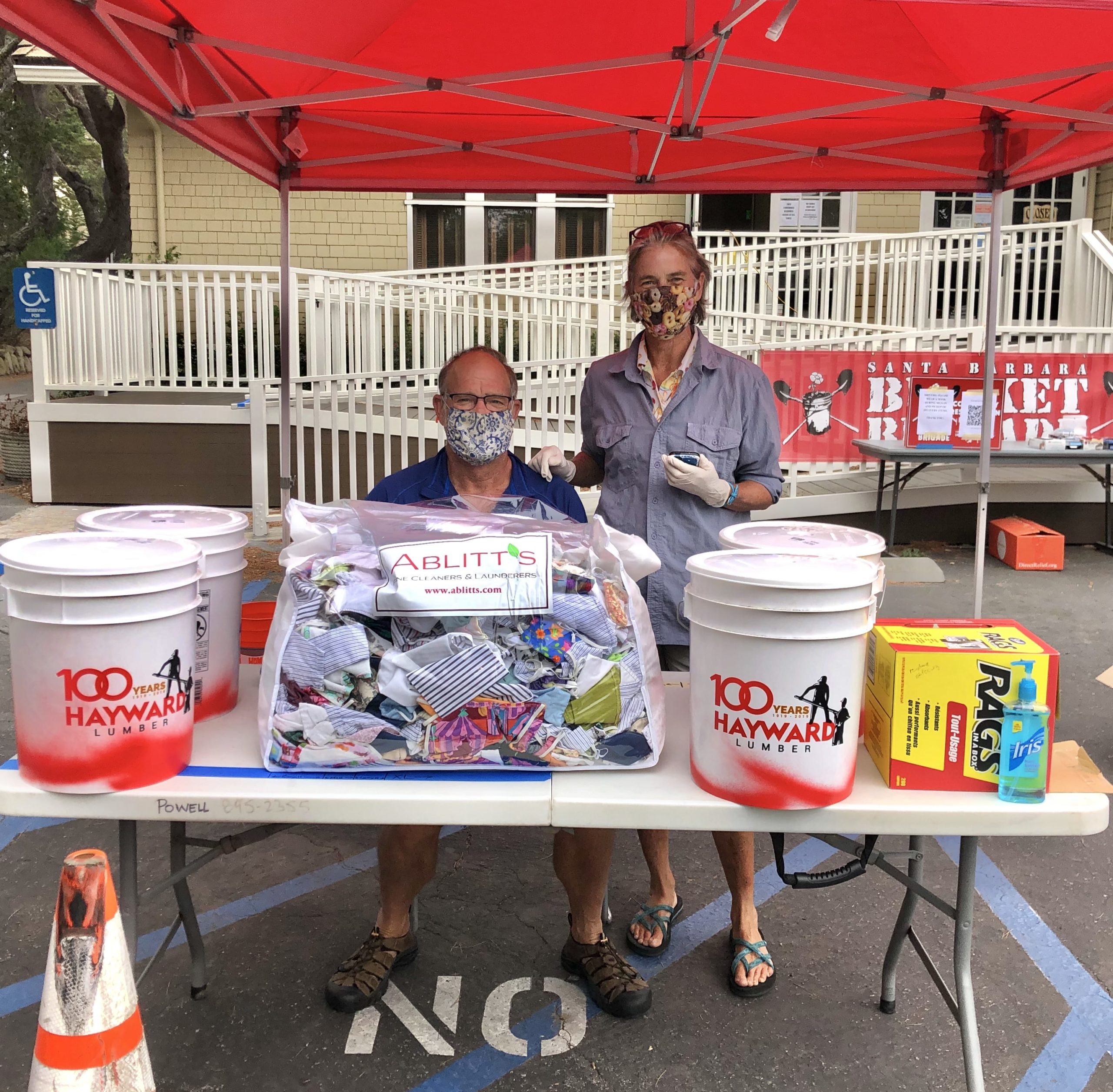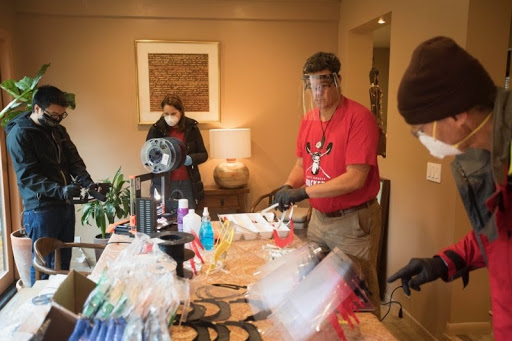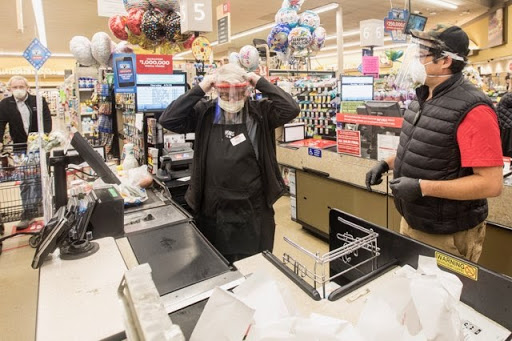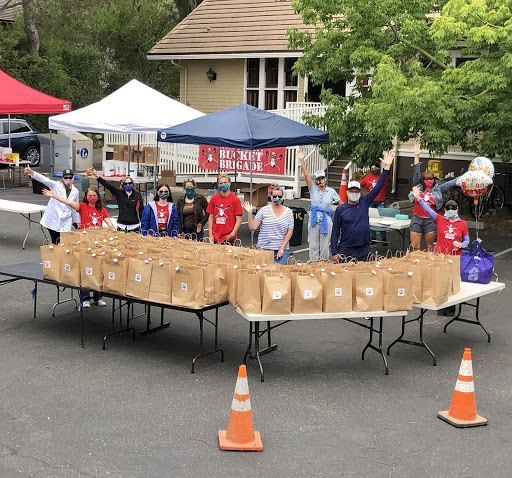
The Santa Barbara Bucket Brigade stands with Black Lives Matter and peaceful protesters condemning the murder of George Floyd and many others as well as the systemic racism in this country. We support the right of the people to peaceably assemble and to petition the government for redress of this epic grievance at the very core of our United States of America. The Bucket Brigade was founded on the humanitarian principle that neighbors help neighbors in a time of need. We believe that all human beings are neighbors on this earth. We are an inclusive organization, and we welcome everyone without regard to race, gender, politics, religion, sexual orientation, or physical abilities.
OUR WORK
Responding to crisis through volunteer training, coordination and deployment.

MAKE MASKS, SAVE LIVES
In March 2020, it became clear that masks and cloth face coverings could help reduce the spread of COVID-19. In fact, scientists determined that universal masking was “emerging as one of the key ‘non-pharmaceutical interventions’ for containing or slowing the spread of the pandemic.” — Universal Masking Report
“In places like Japan, Hong Kong and Taiwan, universal mask wearing is credited with helping prevent an out-of-control spread of the coronavirus.” — Los Angeles Times, 6-12-20.
In California, and the United States in general, masks were in very short supply, with N95s backordered until 2021 and few other options on the shelves of local supply houses. But essential service workers needed to keep reporting to their jobs at hospitals, grocery stores, water supplies, nursing homes, farms, fire stations and many other critical services agencies. Initially, we donated the 1500 N95’s we had in our warehouse to Cottage Hospital and the Foodbank,and then we decided to make more masks.
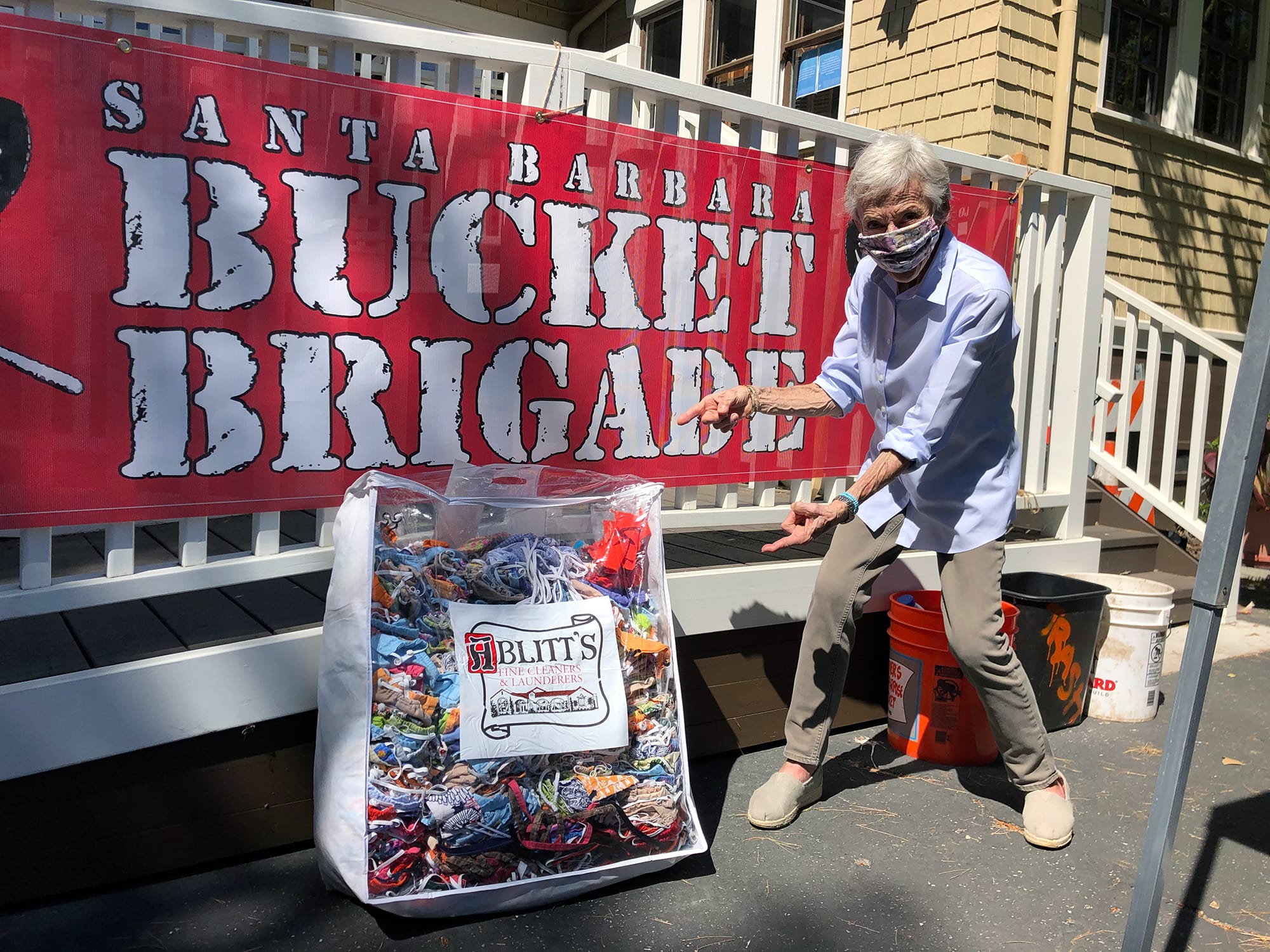
Most people associate the Bucket Brigade with mud, rocks and digging after the debris flow in 2018. Many of our supporters wondered: “How are a bunch of dirt diggers going to sew masks?” But the mission of the Bucket Brigade was not and is not solely to dig. Our mission is to “prepare for and respond to natural disasters and community crises through volunteer training, coordination and deployment.” To do that, we developed the “Community Self-Rescue” system for volunteer deployment in 2018. This system identifies unmet community needs, and works to meet those needs through organized community volunteer deployment. In 2018, after the biggest natural disaster in Santa Barbara County history, the community needed to move millions of pounds of mud and debris. The Bucket Brigade set up a system to allow volunteers to do that safely and cooperatively in a massive demonstration of community resilience.

In April 2020, the community needed masks and face shields, so we set up a cooperative system that enables volunteers to make those items in the safety of their homes during the pandemic.
This is how Community Self-Rescue works. It starts with the question: How can we — the community — work together to address trauma, need and hardship rapidly and directly rather than waiting for outside agencies to come and solve our problems for us?” In 2019, we asked ourselves: “What if we were prepared to respond to any community crisis using the CSR approach at scale?” Given the fact that we are now facing a global pandemic and devastating effects of climate change simultaneously, in 2020 the question became: “If we can rapidly mobilize the community to help people in need, shouldn’t we do it?”
We are convinced that we should.
We are an organization that was conceived and built to organize community solutions on the fly —before, during and after a crisis — and that is exactly what we are doing.
On April 7, we launched our Most Mask Makers Challenge, inviting volunteer seamstresses, sewists, quilters and tailors to make cloth face coverings for essential service workers. A couple days later, a Girl Scout named Stella with a “Hello Kitty” sewing machine showed up with a couple dozen masks at Bucket Brigade headquarters. We were doing it.
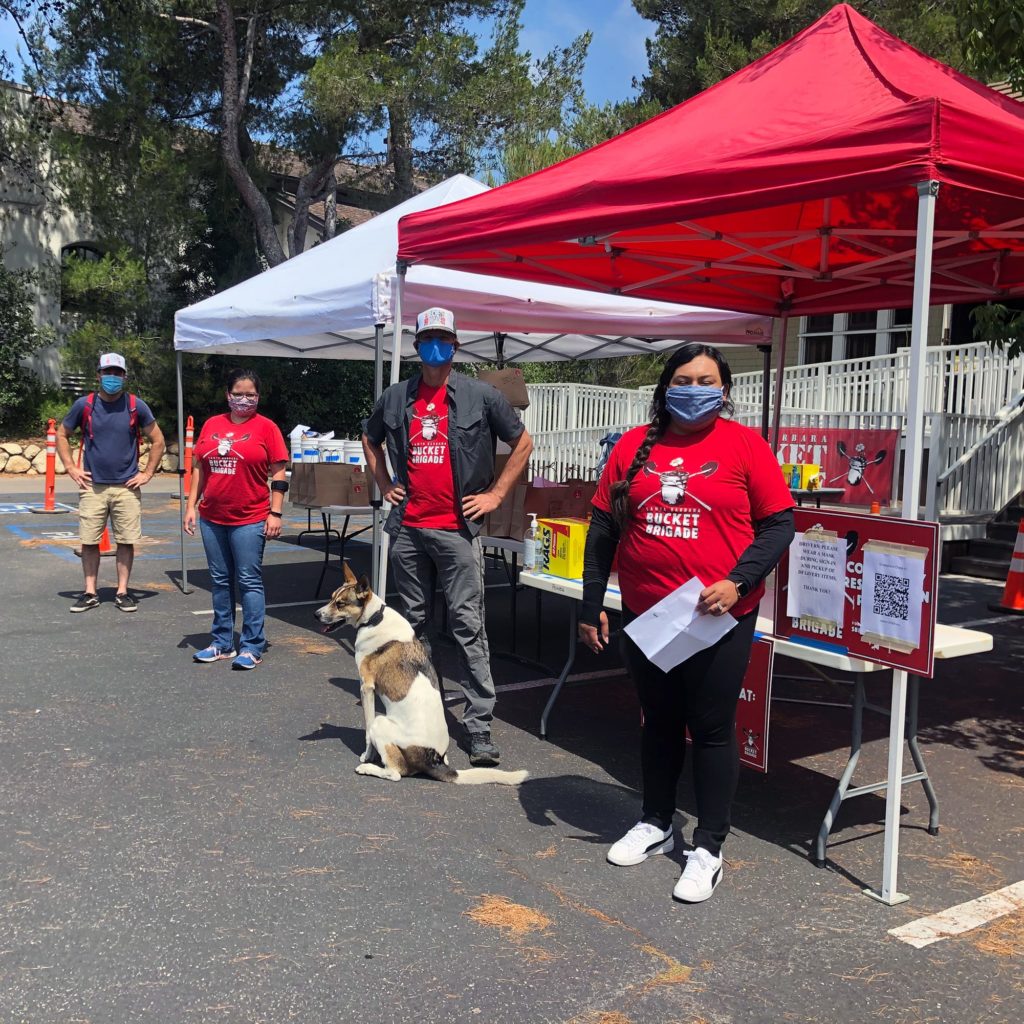 In the coming weeks, more than 300 volunteers signed up to help. The Bucket Brigade quickly organized a community supply chain that includes fabric-cutting by “Success Stories” inmates at Santa Barbara County Jail, laundering service at Mission Linen, and volunteer drivers to drop off free fabric and elastic to our mask makers and to pick up their completed masks. These finished masks are then laundered by Ablitt’s Fine Cleaners, inspected and sorted, packaged, and delivered to nurses, farmworkers (pictured), grocery clerks, elder and childcare facilities, and other community members working in the midst of this pandemic. Our team of more than 400 volunteers, working together, makes this all possible.
In the coming weeks, more than 300 volunteers signed up to help. The Bucket Brigade quickly organized a community supply chain that includes fabric-cutting by “Success Stories” inmates at Santa Barbara County Jail, laundering service at Mission Linen, and volunteer drivers to drop off free fabric and elastic to our mask makers and to pick up their completed masks. These finished masks are then laundered by Ablitt’s Fine Cleaners, inspected and sorted, packaged, and delivered to nurses, farmworkers (pictured), grocery clerks, elder and childcare facilities, and other community members working in the midst of this pandemic. Our team of more than 400 volunteers, working together, makes this all possible.

This project continues today. To date, our team has made and distributed more than 23,000 masks.
For our April contest, Brian Roeder (pictured) was our Most Mask Maker Challenge winner. In just three weeks, he sewed 437 masks (out of the 7200 masks total) we made in April. For May, we set a goal of 8000 additional masks as a community goal — and we crushed it by making more than 9000.
Our sewists are still at it, plus we’re refining our patterns and materials to create safer, more comfortable (and stylish!) masks.
If you would like to get involved, please join our team! There are many different ways to help.
Big Buckets of Thanks to Our Most Mask Maker Project Sponsors:
The Zegar Family Foundation, Montecito Association, Lee Heller, Village Service Station, Ablitt’s Fine Cleaners, Mission Linen Supply, Santa Barbara County Sheriff’s Office, Powell-Peralta Skateboards, CARP Growers, City of Santa Barbara Parks & Recreation, Handlebar Coffee, Imagine Graphics, Jules by the Sea, Lito’s Mexican Restaurant, Rincon Brewery, Rusty’s Pizza, Spudnuts, Bree’osh Bakery Cafe, and Three Pickles Subs & Sandwiches!
A Step-by-Step of the Bucket Brigade Most Mask Maker Project
We use 100-percent tightly woven cotton for the face covering and elastic for the ear loops. Some of this material is donated to us, but we purchase most of it from suppliers in Southern California.
We take the fabric to Santa Barbara County Jail, where inmates with the “Success Stories” program cut it into 12” strips for masks. [Update — this program has been put on hold because of a recent COVID-19 outbreak among Sheriff’s staff members at County Jail.]
The fabric strips are sent to Mission Linen for laundering.
Each mask-making kit includes enough fabric and elastic to make 25 masks. An instruction sheet with a pattern is included in each kit.
We optimize the delivery routes with the Route4Me app and email it to our drivers. On delivery day, they also get a hardcopy of the route, plus any special instructions for particular addresses, such as a tricky driveway or a number the driver can call if he or she gets lost.
When drivers arrive at Montecito Library, they pull up to a table and scan a check-in QR code (to activate their volunteer shift), preferably without getting out of their vehicle.
A Bucket Brigade staffer places a driver’s bucket of mask-making kits into the truck of their vehicle or through an open window. We also give drivers sandwiches, snacks, and soda for the drive. Across the street at Village Service Station, they can get $15 in free fuel. Drivers are now ready to go!
When a driver is finished with the delivery route, which includes returning to the library to drop off finished masks, the QR code is scanned again to end their shift.
On the next delivery day, these completed masks are distributed by our volunteer drivers to essential service workers throughout Santa Barbara County!
Face Shield Makers Project
Running parallel to our Most Mask Makers Project, the Bucket Brigade has been assembling and distributing plastic face shields for essential service workers across the county. Launched by volunteer Marco Farrell, this project deploys about three dozen 3D-printer enthusiasts to print face-shield parts with free filament provided by the Bucket Brigade. The parts are then collected by our drivers, and the face shields are assembled and boxed during safe, family friendly volunteer workdays in the Montecito Library parking lot.
Marco Farrell hands out the finished product to grocery store clerks during the spring peak of the pandemic.
An anonymous donor is providing up to $10,000 to match any donations made to our Face Shield Project. If you would like to help us purchase more filament for our 3D-printer team, click here:
Volunteer Opportunities
In addition to our mask and face shield projects, the Bucket Brigade has teamed up with other agencies and nonprofits to fill hundreds of volunteer shifts across the county — from delivering food to vulnerable families and homebound seniors, to assisting at homeless shelters and community centers.


